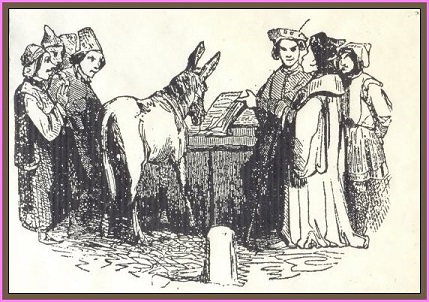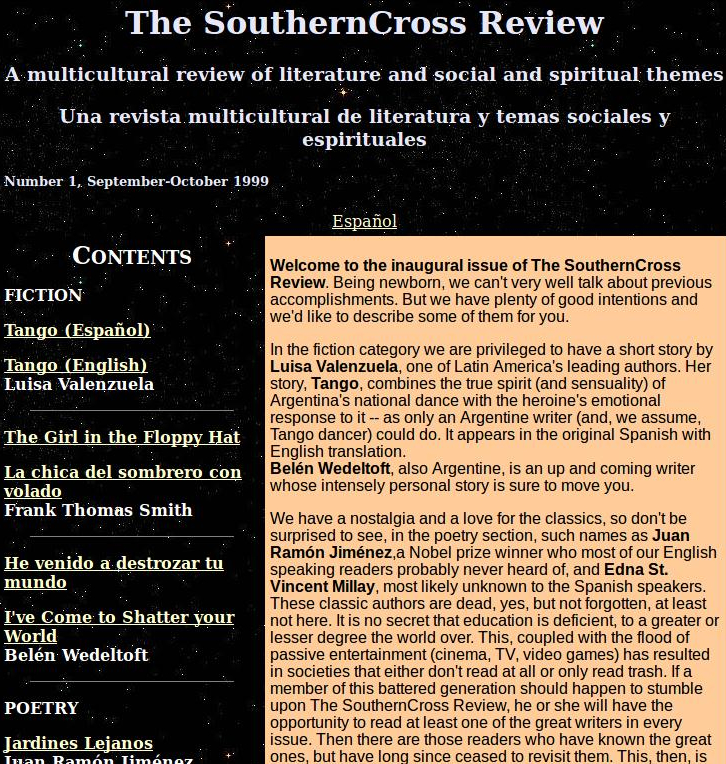"Portrait of Sra. Dona Flores de Carillo"

Diego Rivera (December 8, 1886 – November 24, 1957) was a prominent Mexican painter and the husband of Frida Kahlo. His large wall works in fresco helped establish the Mexican Mural Movement in Mexican art. Between 1922 and 1953, Rivera painted murals among others in Mexico City, Chapingo, Cuernavaca, San Francisco, Detroit, and New York City. In 1931, a retrospective exhibition of his works was held at the Museum of Modern Art in New York City.
Southern Cross
Review recommends:
SouthernCrossReview recommends:

Antroposophical Fantasies
by Roberto Fox.
(Frank Thomas Smith's alter ego)
Anthroposophy, also known as Spiritual Science, is not known for fantastic literature, or fiction at all. So how can stories with titles like “Life on Mars” or “The Girl in the Floppy Hat” or “To Hunt a Nazi” qualify as anthroposophical. They do not … until now. Therefore this book is groundbreaking. You may smile at times, even laugh; other stories may cause a lump in your throat, perhaps even a tear or two. Oh, and by the way, fundamentalists are advised not to partake of this fantastical frosting on their anthroposophical cake.
Available both in paperback and Kindle eBook
Get it >>HERE<<
Don't forget to so we can advise you when the next issue is ready.
You can find us under the Southern Cross in the Traslasierra Valley, Province of Córdoba, Argentina. Visitors always welcome. Just follow the sign that reads: La Cruz del Sur.
Frank Thomas Smith, Editor
Editor's Page
The Meaning of Meaninglessness

It was C. G. Jung, I think, who said that the main cause of the psychological damage to humanity is meaninglessness. This seems to me to hit the bullseye. People have been trying to find the meaning of life since they have had the time to think about it, and they came to the inevitable idea that there is another world beyond the known physical one, but so similar that it was located in a different place, a faraway country with a Mount Olympus, for example. The denizens of that country, despite being gods, were much like ourselves, with the same virtues (sometimes), the same desires and shadow-sides, but much more powerful...
Continue reading
Current Events
2084 - Orwell Revisited in the Age of Trump

I, Winston Smith... I mean, Tom Engelhardt... have not just been reading a dystopian novel, but, it seems, living one -- and I suspect I’ve been living one all my life. Yes, I recently reread George Orwell’s classic 1949 novel, 1984. In it, Winston Smith, a secret opponent of the totalitarian world of Oceania, one of three great imperial superpowers left on planet Earth, goes down for the count at the hands of Big Brother. It was perhaps my third time reading it in my 75 years on this planet. Since I was a kid, I’ve always had a certain fascination for dystopian fiction. It started, I think, with War of the Worlds, that ur-alien-invasion-from-outer-space novel in which Martians land in southern England and begin tearing London apart...
Continue reading
Education
El otro aniversario - El socialismo trimembre
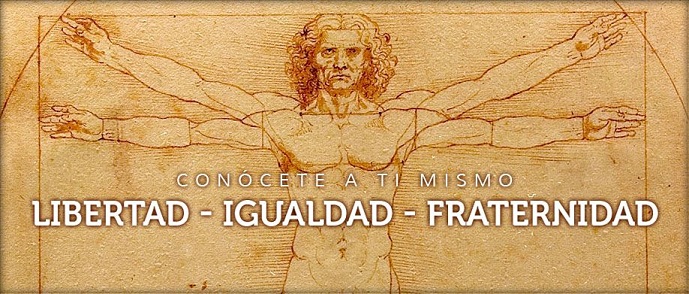
El impulso para fundar la primera Escuela Waldorf en Alemania hace cien años surgió de la iniciativa del empresario Emil Molt, colaborador de Rudolf Steiner, que quiso poner en práctica el concepto principal del "socialismo trimembre": la libertad del ámbito cultural/espiritual de la sociedad. No por nada la escuela fue denominada "Escuela Libre Waldorf". La palabra Waldorf proviene del nombre de la fábrica de cigarrillos de la cual era dueño el mencionado empresario. La intención original fue crear una escuela libre (de intereses políticos y económicos) para los hijos de los obreros de la fábrica, aplicando las ideas pedagógicas de Rudolf Steiner...
Continue reading
Anthroposophy and Waldorf Education - A Dynamic Relationship

Among educational academics Waldorf education tends to be viewed with a considerable degree of critical
scepticism. Their criticism is not focused on the education as such, but upon the worldview behind it, namely, anthroposophy. Klaus Prange (Prange, 1985, 2005), Ehrenhard Skiera (Skiera, 2009), not to speak of Heiner Ullrich (Ullrich, 1986, 1988, 2015), all incisively stress the fact that Waldorf education’s dependence on anthroposophy renders it unacceptably “worldview-laden”. In his latest publication (Ullrich, 2015) Heiner Ullrich lays out the details occasioned by this basic critical stance. He singles out Waldorf education as having an ideological bias unique among the various forms of progressive education: “It is founded entirely upon the view of the human being and of the world contained in Rudolf Steiner’s anthroposophy. This determines not only teaching methods, but also, in diversely inter-related ways, the content of the curriculum and the subjects taught. No other type of school from among the classical canon of progressive education has a culture moulded by a single worldview to the extent that the Waldorf school has been.”
Continue reading.
Book Review
The Gnostic Jung - And the Seven Sermons to the Dead
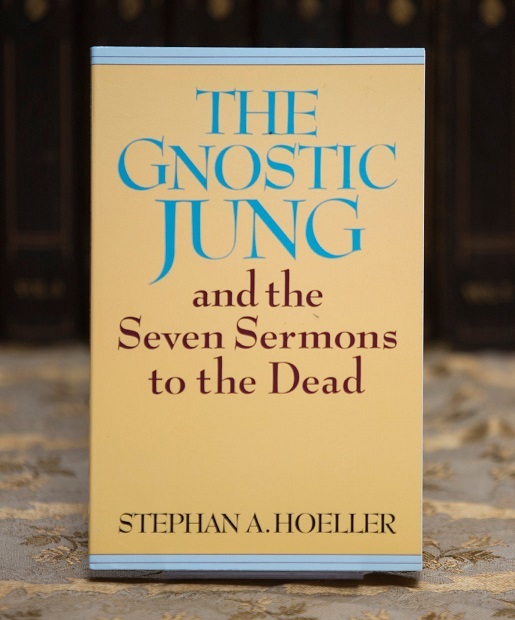
The Seven Sermons to the Dead is a mysterious, little known or understood work of C. G. Jung’s, which was privately printed in German, without copyright or date, sometime between 1920 and 1925, and distributed to a select group of friends. Stephan A. Hoeller copied, then translated it from the original. Then he wrote a book in which he not only calls The Seven Sermons a Gnostic document, but also claims that Jung himself was a modern Gnostic.
The Gnostic Jung is essentially an attempt – and a very good one at that – to interpret the Seven Sermons, and they certainly need interpretation. Along the way, Hoeller, an almost worshipful admirer of the “Wise Man of Küsnacht”, gives us a clear, skillful elucidation of some of Jung’s essential ideas. But the question is: Was Jung really a Gnostic? Certainly he admired Gnostic thought and his works are liberally sprinkled with references to them. But he never called himself a Gnostic; on the other hand he never identified with any philosophical or religious stream but his own psychoanalytical specialty...
Continue reading
Features
No Fairy Tale - The Trump Administration’s Declaration of Inhuman Rights

Lately, I’ve been thinking about the Grimms' fairy tale Hansel and Gretel. Terrified by cruel conditions at home, the brother and sister flee, winding their way, hungry and scared, through unknown woods. There, they encounter an old woman who lures them in with promises of safety. Instead, she locks one of them in a cage and turns the other into a servant, as she prepares to devour them both. Written in nineteenth-century Germany, it should resonate eerily in today’s America. In place of Hansel and Gretel, we would, of course, have to focus on girls and boys by the hundreds fleeing cruelty and hunger in Central America, believing that they will find a better life in the United States, only to be thrown into cages by forces far more powerful and agents much crueler than that wicked old woman... Continue reading
What the Last Lving Prosecutor of Nuremberg Wants the World to Know
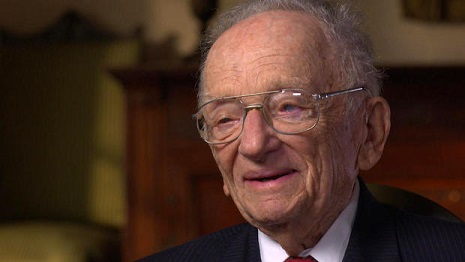
It is not often you get the chance to meet a man who holds a place in history like Ben Ferencz. He's 99 years old, barely five feet tall, and he served as prosecutor of what's been called the biggest murder trial ever. The courtroom was Nuremberg; the crime, genocide; and the defendants, a group of German SS officers accused of committing the largest number of Nazi killings outside the concentration camps. More than a million men, women and children shot in their own towns and villages in cold blood. As we first reported two years ago, Ferencz is the last Nuremberg prosecutor alive today. But he isn't content just being a part of 20th century history -- he believes he has something important to offer the world right now... Continue reading
Science
Was Darwin Wrong? Yes, His Logic was Fatally Flawed
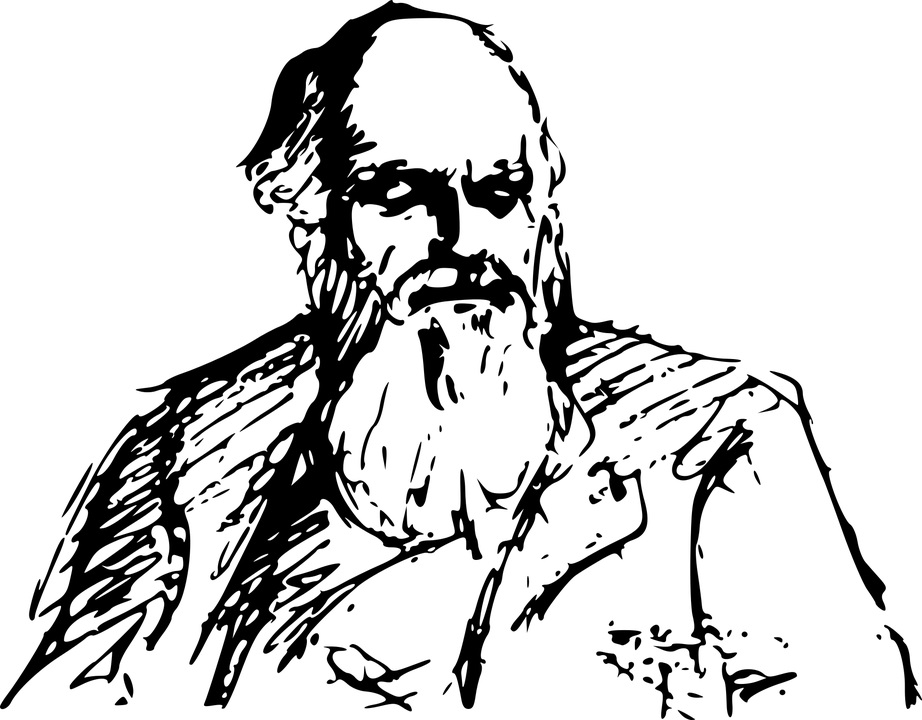
A ‘quantum’ revolution has taken place in the science of physics, we see it written about and discussed everywhere today. It is the focus of many popular works, like Gary Zukav’s The Dancing Wu Li Masters, and Amit Goswami’s The Self-Aware Universe, to name only two. Zukav summed up what has changed in these words:
“Today, particle accelerators, bubble chambers, and computer printouts are giving birth to another world view. This worldview is as different from the worldview at the beginning of this [20th] century as the Copernican worldview was from its predecessors. It calls upon us to relinquish many of our close-clutched ideas. In this world view there is no [physical] substance.”
Continue Reading
The Generalized Copernican Cosmological Principle

The generalization of the Genuine Copernican Cosmological Principle was an obvious step to take. It required only two small changes in its formulation to turn into another, more general principle. Copernicus was of the opinion that the Universe observed from every planet looks roughly the same. It is enough to replace the word planet with point and to add in every direction to get the Generalized Copernican Cosmological Principle, which is also called the Ordinary, Narrow, or Weak Cosmological Principle: The Universe observed from every point and in every direction looks roughly the same... Continue reading.
Fiction
Sinful Simon and the Holy Innocents

I had just been released from the army after the Korean War and it was a fine spring day in Manhattan. I was strolling along watching the girls go by and trying not to remind myself that I’d have to get a job soon or find some way to avoid it, when I saw Sin approaching from half-way down the block. His face and bouncing gait were unmistakable. He had a pretty girl on his arm, to whom he was talking animatedly, which made me wonder because the last time I saw him he was a seminarian studying to be a priest. I waited till they were close and said, “Sin, is it you?” He stopped in his tracks and stared at me while his mind processed who I was. "Frankie, I can’t believe it.” We shook hands and he introduced the girl, Wanda, as his fiancée. “C’mon, old buddy, I’ll buy you a drink,” he said, and we went into a bar, “The Shamrock”, I think it was called. It had the familiar green clover hanging on a sign over its entrance... Continue reading
The Spy Who Broke the Bank at the Wiesbaden Casino

The Kid’s arrival in Wiesbaden, Germany about a week after us was a mystery because we assumed he’d arrived in Bremerhaven on the troop ship with the rest of us and that he’d been on the same night-train down to the U.S. Air Force base in central Germany. We had shipped out of Hoboken, New Jersey together. We were all assigned to a secret wing of the Air Force Intelligence Service to which he too seemed to belong. So naturally we wondered where he was that week. Was he even on the same train? Polak suggested that maybe they flew him here from the States, which would have meant he was on some special assignment. But the Kid? On special assignment? In those times a special assignment was very, very special. But the Kid didn’t look the part. In any case, he never explained and we soon forgot it...
Continue reading...
Anthroposophy
Esoteric Lessons for the First Class - Recapitulation 2

My dear sisters and brothers,
Despite the fact that a number of new members of this Esoteric School are present today who have not attended the previous classes, it will not be possible to repeat the introductory words. Therefore, I must insist that if the new members receive the verses from other members in the manner I will describe later, at the end of the lesson, then those who give the verses to the new members are duty bound to inform them of the conditions for membership in the School. So now we must immediately continue where we left off the last time...
Continue reading
Understanding Modern History - Lecture 3

I have already indicated a few of the symptomatic forces that play a part in the development of contemporary history. I have only time to discuss a few of these impulses. To discuss them all — or even the most significant — would take us too far. I have been asked to give special attention to specific impulses of a symptomatic nature. This can be deferred until next week when I will willingly speak of those symptoms which have special reference to Switzerland and at the same time I will attempt to give a sketch of Swiss history. Today, however, I propose to continue the studies we have already undertaken. I concluded my lecture yesterday with a picture, albeit a very inadequate picture, of the development in recent times of one of the most significant Symptoms of contemporary history — socialism. Now for many who are earnestly seeking to discover the real motive forces of evolution, this social, or rather socialist movement occupies the focus of attention; apart from socialism they have never really considered the claims of anything else... Continue reading
Karmic Relations - Volume 1, lecture 10 Charles Darwin, Woodrow Wilson and others

In our study of karmic connections I have hitherto followed the practice of starting from personalities in more recent times and then going back to their previous lives on earth. Today, in order to amplify the actual examples of karmic connections, I propose to go the other way, starting from certain personalities of the past and following them into later times, either into some later epoch of history, or right into the present day. What I want to do is to give you a picture of certain historic connections, presenting it in such a way that at every point some light is shed on the workings of karma. If you follow the development of Christianity from its foundation, tracing the various paths taken by the Christian Impulse on its way across Europe, you will encounter a different stream of spiritual life which, although little heed is paid to it today, exercised an extraordinarily deep influence upon European civilisation under the surface of external events. It is the stream known as Mohammedanism [Islam], the Mohammedan religion, which, as you know, came into existence rather more than 500 years after the founding of Christianity, together with the mode of life associated with it...
Continue reading
Poetry
The Silent Shadow

The winter sun strums its tune
Upon my body – in fact my back,
Hurrying home from a weekly walk
Through the woods with my dogs today.
I feel alone with my solitary self
Inhabiting my body blocking the sunlight.
But now – starting at my feet –
Slouching at the selfsame speed,
Reaching upward to my head,
A shadow follows me, or rather
I am following the silent shadow.
I ask who it is, what it wants...
Continue
Words And Music
Joan of Arc

Now the flames they followed Joan of Arc
As she came riding through the dark
No moon to keep her armour bright
No man to get her through this very smoky night
She said, "I'm tired of the war
I want the kind of work I had before
A wedding dress or something white
To wear upon my swollen appetite"
Look and Listen
Search SCR.org
